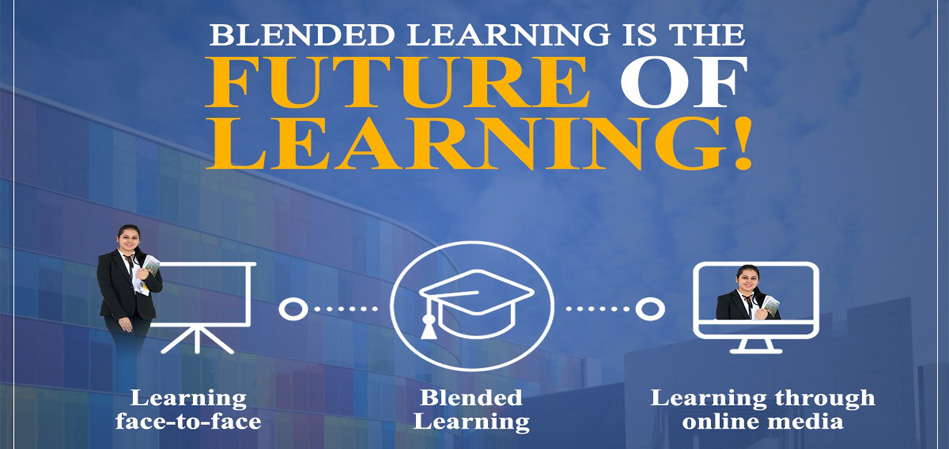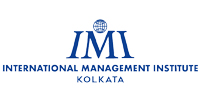
With West Bengal contemplating starting on-campus classes in December, IMI Kolkata is all equipped and prepared to welcome the students back on the college campus that is set in Alipore, Kolkata. Gearing up for Blended Learning as a mode of education, along with adopting extreme hygiene protocols are the current frenzied activities on campus.
Putting it in simple words, Blended Learning is a multi-formatmethod of teaching. Faculty members teach in the classroom to the students who are physically present and this gets live-streamed to the students outside the classroom. So in essence, it is a combination of face-to-face interaction (in campus) while also usingelectronic platforms forimpartingeducationonline(remote learning).
Students attending classes physically in the classrooms will follow social-distancing norms. Classrooms have been equipped for blended learning with equipment like 360 degree cameras, microphones, etc.A primary monitor will be present for displaying any presentation or content by the faculty member.Additionally, a fifty inches monitor screen will house all the participants attending in the online mode. This will give faculty the opportunityto simultaneously engagewith both sets of students – in-campus and off-campus. This model can expectantly maximise the educational impact on young people, both in and out of the classroom.
Prioritising safety of the students, students will arrive on campus in batches, follow quarantine protocols and continue withonline classes for two weeks before walking into the classrooms. Prior to their arrival, complete santisation of the campus and common spaces has been done to ensure maximum safety of the students, faculty and staff members.
Retracing steps to the days immediately following the spread of the pandemic and the national lockdown, B-schools were inadvertently forced to rise up to the situation and ensure education continuity. At that time, IMI Kolkata too transitioned from face-to-face classroom learning to the online format,for providing students with a seamless learning experience. Smart boards, graphic pen tablets and zoom platforms are being used by our faculty members. Evaluation patterns have also been modified to become increasingly assignment-based, as concept-based learning has taken precedence over rote learning.
On a national level, this sudden shift from physical to digital learning brought along its fair share of challenges for students and educators alike. In remote locations, lack of resources like electricity and internet, technological devices, absence of digital platforms to support educational formats, are some of the major problems plaguing online education. A need still existsfor institutions and governments to address thesefactors that pose impediments in the changed-learning experience.
During this period, B-schools have been re-designing their existing methods of teaching in the COVID world to ensure safe and secure learning environments, without compromising on the education quality. The physical interactions of blended learning will be best-suited for developing capabilities like problem-solving skills in situations that use complex variables, design thinking and critical soft skills, judgement, persuasion, emotional intelligence, communication and creativity, among the students. However, the class scheduling modality too will have to be re-worked, as the number of students accommodated in a classroom will change because of social distancing norms.
However, effecting this change – from a traditional method to online and finally that of blended learning – calls for a shift in the mind-set of all the stakeholders. While the current youth are most resilient, tech-savvy and digital natives, the psychological barriers to change among the others have also reduced substantially.
Professor Mohua Banerjee, Director, IMI Kolkata, says, “What will be the game-changer in the days to come will be an institute’s ability to focus on lasting changes – deploying digital technology at scale, stepping up and re-offering education through blended formats, and adding value to the student community in a healthy, safe and productive way.With the easing of basic restrictions that were imposed during the lockdown,institutes that use such blended learning formats will emerge as competitive and resilient.”
Going forward, with institutes establishing the technological infrastructure and faculty members delivering across such multiple formats, a certain part of this change is expected to remain even in a post-COVID world, and may prove to be an enduring business model in the long-term.
Written by Ms. Asmita Biswas, Executive, Branding and Media Team.


